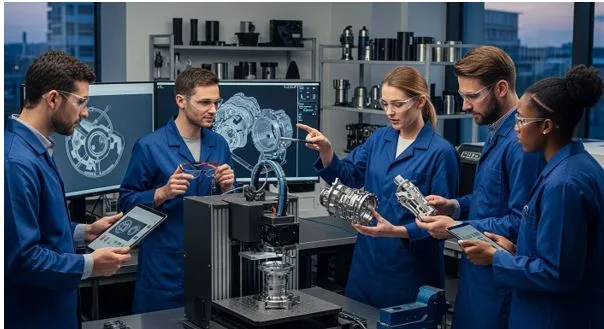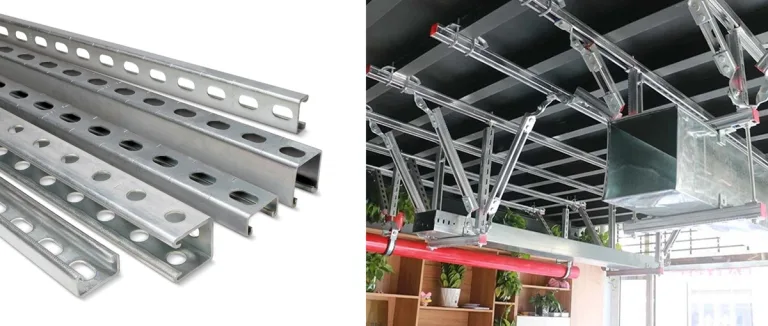Advancing Careers with an Additive Manufacturing Masters
Additive manufacturing, commonly known as 3D printing, is revolutionizing industries by enabling the creation of complex designs, reducing waste, and accelerating product development. From aerospace and automotive to healthcare and consumer goods, the demand for professionals skilled in additive manufacturing is growing rapidly. To meet this need, many universities around the world now offer advanced degree programs in the field. Pursuing an Additive Manufacturing Masters provides students with the technical expertise, hands-on experience, and research opportunities required to lead innovation in this transformative sector.
This article explores what additive manufacturing is, why specialized education matters, what students can expect from a master’s program, and how it can open doors to impactful careers.
What is Additive Manufacturing?
Additive manufacturing is a process of creating objects layer by layer from digital models, using materials such as polymers, metals, ceramics, and composites. Unlike traditional subtractive methods—where material is removed to shape a product—additive manufacturing builds components directly, minimizing waste and enabling design flexibility.
Some of the leading techniques include:
- Fused Deposition Modeling (FDM): Melting and extruding thermoplastic filaments to build structures.
- Selective Laser Sintering (SLS): Using lasers to fuse powdered materials layer by layer.
- Stereolithography (SLA): Curing liquid resin with UV light.
- Direct Metal Laser Sintering (DMLS): Creating high-strength metal parts using lasers and powdered alloys.
- Binder Jetting and Electron Beam Melting (EBM): Advanced methods for producing complex and durable components.
These technologies are reshaping supply chains and enabling innovations in sectors like biomedical implants, lightweight aerospace components, and customized consumer products.
Why Pursue a Master’s in Additive Manufacturing?
As additive manufacturing continues to evolve, industries require specialists who not only understand the technology but also its integration into design, materials science, and business strategies. Undergraduate degrees may introduce the basics, but a specialized master’s program offers advanced expertise.
Key reasons to pursue an Additive Manufacturing Masters include:
- In-depth Technical Knowledge: Students gain mastery over advanced processes, material behavior, and software tools.
- Hands-On Experience: Programs emphasize lab work, prototyping, and real-world applications using industrial-grade equipment.
- Research Opportunities: Many master’s programs include research projects, giving students the chance to contribute to cutting-edge developments.
- Industry Collaboration: Universities often partner with corporations, offering internships, sponsored projects, and exposure to industry standards.
- Career Advancement: Graduates are well-prepared for roles in engineering, product development, research, and management.
Structure of an Additive Manufacturing Master’s Program
While program details vary by institution, most master’s degrees in additive manufacturing include a mix of core courses, electives, and research components.
Core Courses
- Principles of additive manufacturing technologies
- Materials science for 3D printing
- Computer-aided design (CAD) and modeling
- Process optimization and simulation
- Quality assurance and testing
Electives
- Biomedical applications and tissue engineering
- Aerospace and automotive design
- Sustainable manufacturing and circular economy
- Business and entrepreneurship in additive manufacturing
Capstone Project or Thesis
Students often complete a final project or thesis that involves designing, prototyping, and analyzing an additive manufacturing solution for a real-world challenge.
Skills Gained from a Master’s Program
Graduates of additive manufacturing programs develop a unique set of interdisciplinary skills:
- Technical Skills: Proficiency in CAD software, design optimization, and equipment operation.
- Materials Expertise: Understanding how polymers, metals, and composites behave in additive processes.
- Problem-Solving Abilities: Applying innovative approaches to complex design and manufacturing challenges.
- Research Competence: Designing experiments, analyzing data, and advancing additive manufacturing science.
- Business Acumen: Knowledge of how to commercialize additive solutions and assess market opportunities.
These skills make graduates highly versatile and valuable to employers across industries.
Career Opportunities After an Additive Manufacturing Masters
Graduates can pursue a wide range of careers in industries adopting 3D printing technologies:
- Aerospace and Defense: Designing lightweight parts, optimizing fuel efficiency, and creating mission-critical components.
- Automotive: Developing prototypes, spare parts, and performance-optimized designs.
- Healthcare and Biomedicine: Producing patient-specific implants, prosthetics, and surgical tools.
- Consumer Goods: Enabling mass customization and rapid prototyping.
- Research and Development: Advancing new technologies, materials, and design methodologies.
- Supply Chain and Manufacturing: Integrating additive processes into traditional production and logistics systems.
Job titles for graduates might include Additive Manufacturing Engineer, Materials Scientist, Product Development Specialist, Research Associate, or Technical Consultant.
Global Demand for Additive Manufacturing Specialists
According to industry reports, the global additive manufacturing market is expected to grow rapidly over the next decade. This expansion is driven by the adoption of 3D printing in mainstream production, not just prototyping. Companies are increasingly seeking professionals who can lead this transformation by implementing efficient and innovative solutions.
Master’s programs are designed to meet this demand, producing graduates who can fill high-demand roles in engineering firms, research labs, and multinational corporations.
Examples of Leading Universities Offering Additive Manufacturing Masters
Several universities worldwide have launched specialized programs to prepare the next generation of experts:
- University of Sheffield (UK): Master’s programs focused on additive manufacturing and advanced materials.
- Technische Universität München (Germany): Courses integrating additive technologies into engineering disciplines.
- Pennsylvania State University (USA): A leader in materials science and additive manufacturing research.
- Nanyang Technological University (Singapore): Advanced curriculum with strong industry collaboration.
- Politecnico di Milano (Italy): Programs emphasizing design, sustainability, and industrial applications.
These institutions highlight the growing global recognition of additive manufacturing as a key field in modern industry.
The Future of Additive Manufacturing Education
The role of education in additive manufacturing will continue to expand as technologies evolve. Future master’s programs may include:
- AI and Machine Learning in Additive Processes: Using data-driven insights to optimize production.
- Nanomaterials and Bioprinting: Developing advanced applications for medicine and high-tech industries.
- Sustainable Practices: Reducing waste and energy use with eco-friendly additive solutions.
- Global Collaboration: Cross-institutional programs bringing together students and researchers worldwide.
Graduates of future programs will not only be engineers and scientists but also innovators shaping the future of manufacturing.
Conclusion
Additive manufacturing is reshaping industries by enabling complex designs, customized solutions, and efficient production methods. As the demand for expertise grows, pursuing an Additive Manufacturing Masters offers a pathway to advanced knowledge, hands-on experience, and high-impact careers.
By mastering technologies like 3D printing, laser sintering, and metal additive processes, students prepare to become leaders in engineering, research, and innovation. These programs bridge the gap between technology and industry needs, equipping graduates with the tools to drive the future of manufacturing.
For aspiring professionals eager to shape the next industrial revolution, a master’s degree in additive manufacturing is not just an academic achievement—it is a career-defining opportunity.





